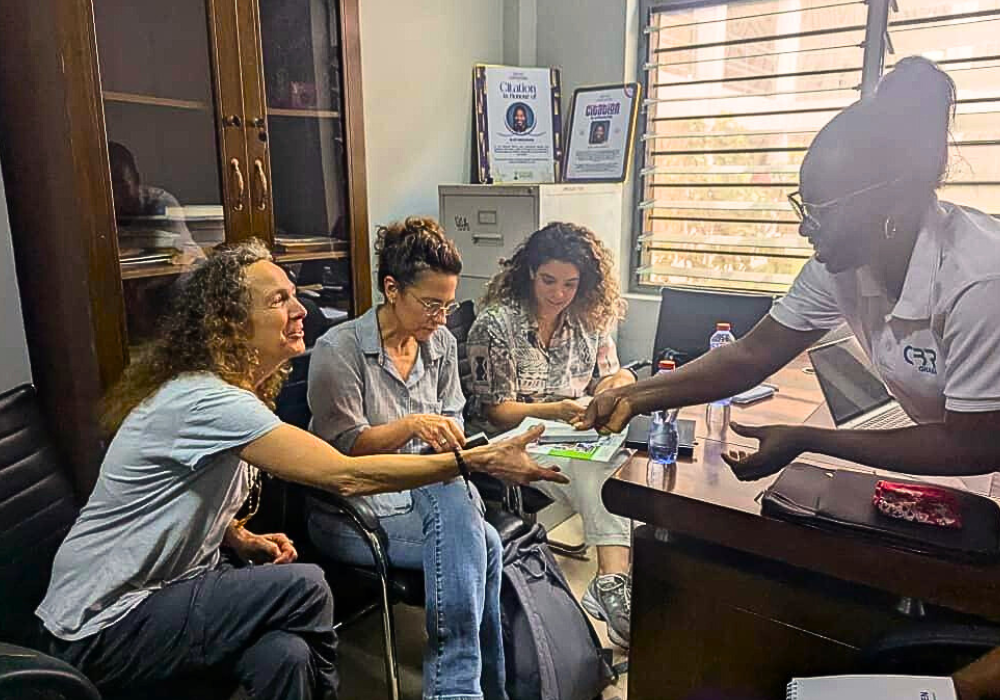Beyond Good Intentions: The Strength of Humility in Leadership

In today’s complex world, woven together by complex challenges, the desire to create positive change doesn’t always translate into the intended impact. This realization particularly struck me when I joined OLAM.
Each one of OLAM’s 70+ organizations is dedicated to enhancing the lives of local communities in developing countries. And each one extends its support in a different way: Some work on infrastructure development initiatives, others embark on projects to promote educational opportunities, combat hunger, or rebuild after natural disasters strike. And while all these, and the myriad of other types of support, are noble causes, the international development community has come to understand that the approach taken to achieve these goals is just as important as the goals themselves.
Among other things – this means recognizing that one cannot simply enter a community and impose a solution upon its members. Not only does this kind of “aid” perpetuate racist structures and power imbalances, it also does not work. If local community members who are affected by a project are not involved in the decision-making process of a project, it will likely ignore their actual needs, as well as important cultural context. And if they do not feel ownership in the project, it’s unlikely that it will be sustainable. In short, recognizing how much local communities have to offer when it comes to solutions for themselves, and giving them the power to implement those solutions are key to the success of such projects. And doing so requires a dose of humility.
Jewish tradition, of course, has long understood this. Moses was described as ‘very humble’ (‘עָנָ֣ו מְאֹ֑ד’) in Bamidbar 12:3, the only character described thus in the Torah. Perhaps he learnt how to actualize this humility from his father-in-law, Jethro, who counsels him in Shemot 18 to delegate decision-making authority to members of the community of Israel.
Jethro points out that positioning oneself as a sole expert on a topic is unsustainable for both the leader and the community. He suggests that Moses appoints a decision-making body composed of people who are trustworthy, which presumably means that the community see them as people worth asking for advice, people who understand their concerns intimately. It’s likely these people have a closer understanding of their context, as they aren’t spending all their time in special convenings with God. Moses accepts Jethro’s advice, demonstrating the capacity for self-reflection and a willingness to share power – and proving he was not so proud as to think that others can’t help him.
With the concept of localization at the forefront of so many discussions in the field of international development, I am proud to highlight two of the many OLAM partners who’ve demonstrated their commitment to localization, and their own humility, in their work.
World Jewish Relief: WJR partners with local organizations and governments in low-income countries to drive their development work. During visits to two of their partners in Rwanda, I witnessed first-hand the trust and openness that existed between WJR HQ staff and the leadership of the Rwandan organizations they work with. WJR’s investment in these relationships underscores their humility, and their recognition that effective development work requires comprehensive support for local partners.
American Jewish World Service: Among the myriad of admirable actions taken by AJWS is their celebration of the work of their local grantees, particularly on social media. During their celebration of Pride, for example, they shared information and beautiful photos of the inspiring staff and activists from a grantee organization in Kenya that’s advocating for LGBTQI+ rights. Recognizing the achievements of others is an integral part of both humility and localization.
Rabbi Jill Jacobs highlights the virtue of humility, and of embracing perspectives beyond our own, in her insight that throughout the Tanakh, the voice of the poor takes precedence over the voice of the wealthy (There Shall Be No Needy, 2009, p78). This underscores the fact that those directly impacted by adversity possess unparalleled insight into their unique challenges and potential solutions.
OLAM’s Aspire program focuses on understanding how to embody this virtue, and we are grateful to WJR, AJWS, and numerous other partners for setting exemplary standards for us, and for others in the field.
As we usher in the Jewish new year, let us reflect on how humility can guide us as leaders. Perhaps a shift in power dynamics could be the solution to challenges you yourself are confronting. Give others a chance to share the wisdom and insights they’ve gained through their lived experiences; you might be surprised by the innovative, and perhaps even transformative, solutions that emerge.
Wishing everyone a shana tova and a happy 5784.
Learn more about ethical practices when engaging with a local community in a developing country.




